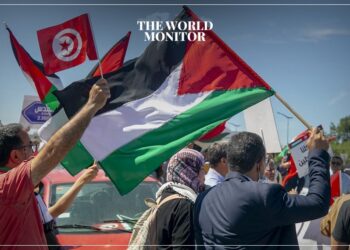Al-Qaeda in the Arabian Peninsula, a terrorist organization, announced on Sunday the death of its leader, Khalid Batarfi, without providing reasons for his demise, according to a statement by the SITE Intelligence Group, which monitors extremist media.
The group stated that Ibrahim al-Qosi, known as the organization’s “legal official,” confirmed Batarfi’s death in a recording broadcast on Sunday. Al-Qosi announced that “Saad bin Atef al-Awlaqi is now the new leader of the organization in the Arabian Peninsula,” recognized by the United States as a terrorist entity.
Batarfi, a Saudi national born in Riyadh in his early forties, assumed leadership of the organization in February 2020 following the death of his predecessor, Qasim al-Raymi, in a U.S. drone attack. Raymi’s predecessor, Nasser al-Wuhayshi, was also killed in a U.S. drone strike in Yemen in June 2015.
Before becoming the group’s leader, Batarfi served as a “sharia judge” and spokesperson for Al-Qaeda in the Arabian Peninsula. The United States designated him as a “global terrorist” in 2018, offering a $5 million reward for information leading to his capture.
His successor, al-Awlaqi, a Yemeni also known as Saad Mohammed Atef, is a member of the organization’s “Shura Council” and is listed on the U.S. “Rewards for Justice” program, with up to $6 million offered for information about him. The U.S. Department of State says al-Awlaqi has “publicly called for attacks against the United States and its allies.”
The presence of Al-Qaeda in the Arabian Peninsula has grown since its establishment in 2009 amidst the chaos caused by the conflict between the Yemeni government and Houthi rebels.
However, the military coalition led by Saudi Arabia and the United States has weakened the organization and other groups exploiting the region’s turmoil.
The United States considers Al-Qaeda in the Arabian Peninsula, based in Yemen, the most dangerous branch of Al-Qaeda. The group has claimed several attacks, including the 2015 assault on the French satirical newspaper Charlie Hebdo in Paris, which resulted in 12 deaths.
It also regularly targets Yemeni soldiers, such as the September attack in Shabwa province that killed four soldiers and four members of the “Southern Transitional Council” in an August roadside bomb attack by the organization.






